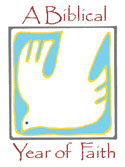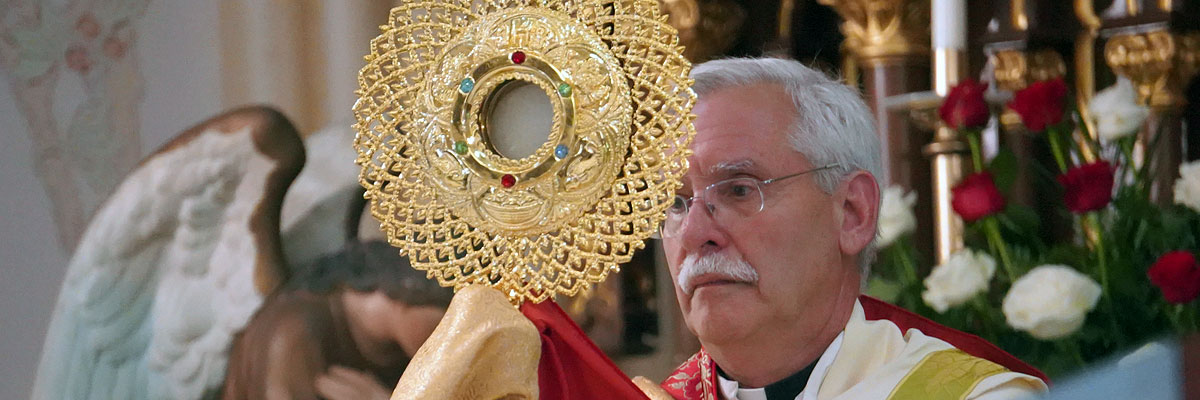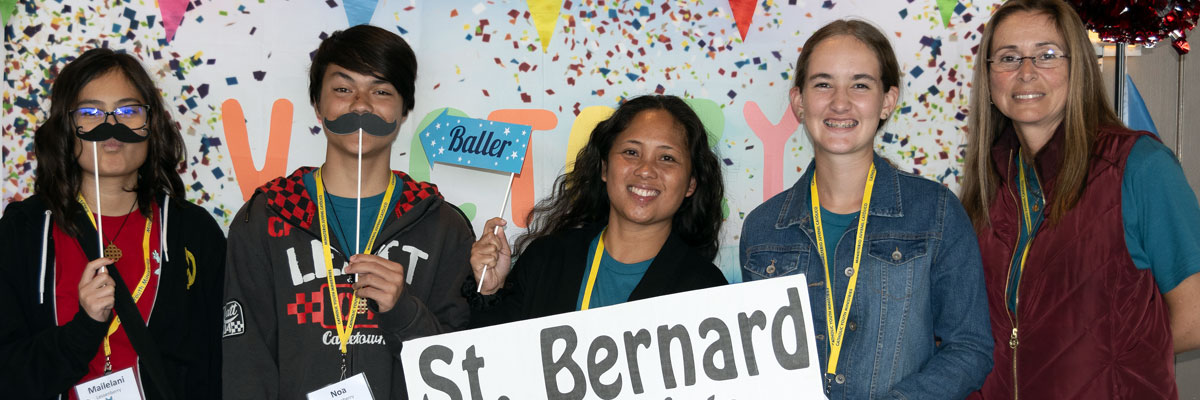Official Website of the
Catholic Diocese of Little Rock
God seeks us in the garden
Published: December 8, 2012
This is the third column in a 14-part series
By Cackie Upchurch
Director of Little Rock Scripture Study
"And he walks with me and he talks with me and he tells me I am his own; and the joy we share as we tarry there, none other has ever known." These words of the gospel standard, "In the Garden" by C. Austin Miles, are familiar to many of us. They beautifully capture the longing and realized hope of simply being with God.
 One way to approach the creation account in the first two chapters of Genesis is to recognize the same longing and realized hope of God's people who crafted these stories under divine inspiration. It might be tempting to picture the authors of the Old Testament simply beginning at the beginning as they compiled the words we now know as sacred Scripture. But their "beginning" was not in Eden.
One way to approach the creation account in the first two chapters of Genesis is to recognize the same longing and realized hope of God's people who crafted these stories under divine inspiration. It might be tempting to picture the authors of the Old Testament simply beginning at the beginning as they compiled the words we now know as sacred Scripture. But their "beginning" was not in Eden.
Their beginning was their experience of God's liberating presence in Egypt and covenant presence in the desert. These events shaped the way they told the stories of their ancestors and of the world's beginnings. They knew God already and they pondered the divine plan as it must have unfolded at the beginning of time.
There is a certain ironic beauty when we consider that a desert people, shaped by harsh landscapes and dry conditions, pondered God's original creative act in a verdant garden. "The Lord God planted a garden in Eden," (Genesis 2:1) complete with lush growth, trees of all kinds to delight the eye, land animals and birds and teeming rivers to water the land and produce food. Furthermore, they pictured God walking about in the garden "at the breezy time of the day," (Genesis 3:8) calling out to the man and woman. It's a bucolic picture that communicates a direct intimacy with the divine.
It's that intimacy that was violated when God's first human creatures ignored the tree of life at the center of the garden and instead ate from the one tree that was off-limits, the tree of the knowledge of good and evil. It was not so much their disobedience that banished them from the garden but their ambition to take God's place. Seemingly not content to be in God's presence, they grasped at the opportunity to judge as only God can between good and evil.
God's people, however, never lost that desire to simply walk in the garden with God, to enjoy the gifts of creation and their creator. Garden imagery punctuates Scripture, reminding every generation that the intimacy of the garden experience is a very rich way to ponder the realities of our faith experience with God.
Israel's prophets sometimes described sinful Israel and the destruction of their homeland as a ruined landscape or garden (see Isaiah 5:5-6; Jeremiah 4:22-26 and Joel 2:21-27). God's presence had been rejected, a reality physically captured in a ravaged landscape. Conversely, Israel's restoration after the exile is often depicted as a return to a refreshing garden landscape, implying that God and his people are once again walking together (see Isaiah 58:11; Jeremiah 31:12-13 and Hosea 14:6-9).
The most significant event in the New Testament is surely the passion, death and resurrection of Jesus. While it occurred in a number of acts, it can be viewed as one event with a pivotal scene taking place in the Garden of Gethsemane (see Matthew 26:36-56; Mark 14:32-50; Luke 22:39-53 and John 18:1-11).
In a grove of twisting olive trees, Jesus took two of his closest disciples with him at one of the most critical times in his life. It was an opportunity to be with him, to pray with and for him and to experience a level of intimacy intended by God from the beginning.
Sadly, the disciples missed the moment of union they were being offered in Gethsemane and a time of peaceful encounter turned into a scene of betrayal and violence with the arrest of Jesus. But betrayal and missed opportunities never have the final word in God's world. John 20:11-18 introduces us to the risen Lord, seeming to Mary Magdalene to be, of all things, a gardener. We've come full circle from the original garden where God brings the world to life to the garden of resurrection where life has the final word.
Study Questions
- When has a garden setting provided a place and time in your life for an encounter with God?
- What traces of the experience of God in the Exodus do you see finding their way into the stories of creation and the fall in Genesis 1-3?
- Why do you think the prophets in Israel may have used the image of the lush or destroyed garden as a way to talk to God's people about their spiritual condition?
- When you reflect on the events described in the Garden of Eden and in the Garden of Gethsemane, what insights help you to appreciate the imagery more deeply?
This article was originally published in Arkansas Catholic Dec. 8, 2012. Copyright Diocese of Little Rock. All rights reserved. This article may be copied or redistributed with acknowledgement and permission of the publisher.









